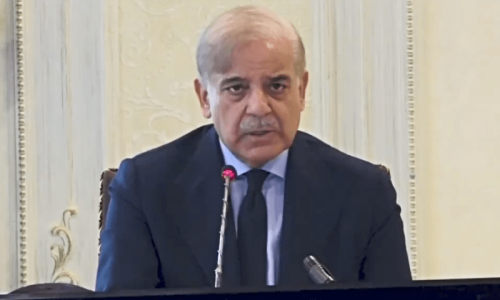ACCRA, Sept 2: Translating billions of dollars of foreign aid into concrete, timely action that helps the world’s poorest is the biggest challenge for donors and recipient countries, speakers at an aid conference said on Tuesday.
Ministers and officials from more than 100 countries that give and receive aid, along with leaders of humanitarian, lending and relief agencies, opened a three-day conference in Ghana aimed at improving the delivery of development assistance.
Critics say that the effectiveness
of more than $100 billion of international aid that is channelled to the developing world each year is often undermined and obstructed by bureaucratic bottlenecks, delays, and political interests.
Concerns about corruption and the squandering of aid funds, especially in weak states in Africa, have also triggered debate about how much donor governments should try to maintain control and oversight over their aid programmes. Recipient countries insist the aid must follow their own development strategies.
Opening speakers at the High Level Forum on Aid Effectiveness in Accra warned that the clock was ticking on efforts to improve aid delivery to achieve ambitious Millennium Development Goals that aim to halve global poverty by 2015.
“There is the need to move forward with a sense of urgency. We must not merely talk about things. We must act,” said Mary Chinery-Hesse, the senior Ghanaian presidential adviser who opened the conference on behalf of President John Kufuor.
Speaking for United Nations agencies, the head of the UN children’s agency Unicef also urged donor and recipient states and their development partners to work in harmony to ensure aid is timely and has a real impact on those who need it most.
“We need concrete objectives and timings to deliver better results,” Unicef executive director Ann Veneman said. Veneman said there had been definite advances in the battle against global poverty, for example in reducing child mortality around the world or in fighting measles and malaria in Africa.
But more needed to be done to make aid more efficient at a time when the world’s poor were struggling to cope with soaring prices for fuel and food. Conflicts and the spread of HIV/AIDS were also obstacles to development.
The Accra conference was due to review progress made in applying broad aid delivery principles agreed at a previous meeting held in Paris in 2005.
The so-called Paris Declaration on Aid Effectiveness called on aid recipient countries to lead their own foreign-supported development, while urging donors to tailor aid to the policies of receiving countries in a more harmonised way. Goals were also set for concentrating on results and mutual accountability.
“We are not going to achieve what we said in 2005. The question is what are we going to do to deliver more effectiveness to take people out of poverty,” Paul O’Brien, Director of Aid Effectiveness for Oxfam America, told Reuters.
“There’s no point having high rhetoric that raises expectations for the poor but doesn’t deliver meaningful results,” O’Brien, who is a member of Oxfam International’s delegation at the Accra conference, added.
Ahead of the conference opening, anti-poverty campaigners and Catholic Church leaders said that such high-level gatherings of experts should not lose sight of the fact aid must be focused on the needs of the world’s poorest, most of them in Africa.
“Leaving the poor out of aid effectiveness is like leaving people out of architecture,” said Rene Grotenhuis, a member of the Catholic relief organisation Caritas delegation in Accra.
“Accra must make the impact on the poor key in the way we look at development spending,” he added in comments cited on the Caritas Website.
A recent study on implementation of the Paris Declaration found that in any average country, only 45 per cent of aid arrived on time, as scheduled by donors. Lack of coordination and fragmentation of aid was also a problem.—Reuters













































Dear visitor, the comments section is undergoing an overhaul and will return soon.